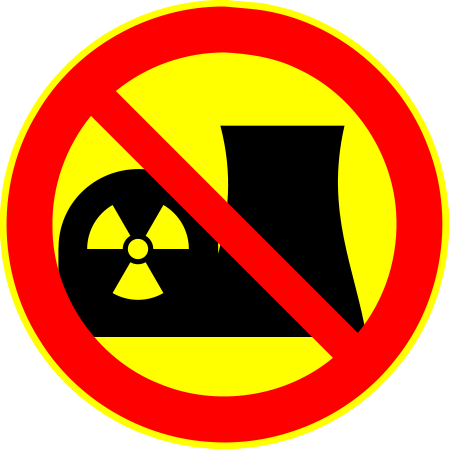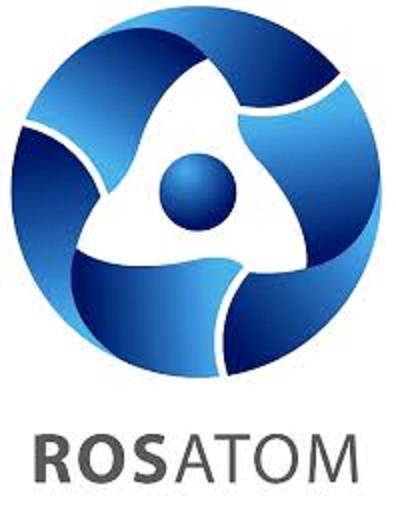
Blog
-
Geiger Readings for May 23, 2016
Ambient office = 129 nanosieverts per hourAmbient outside = 162 nanosieverts per hourSoil exposed to rain water = 154 nanosieverts per hourHeirloom tomato from Central Market = 77 nanosieverts per hourTap water = 89 nanosieverts per hourFiltered water = 80 nanosieverts per hour -
Geiger Readings for May 22, 2016
Ambient office = 119 nanosieverts per hourAmbient outside = 114 nanosieverts per hourSoil exposed to rain water = 119 nanosieverts per hourAvocado from Central Market = 95 nanosieverts per hourTap water = 66 nanosieverts per hourFiltered water = 59 nanosieverts per hour -
Geiger Readings for May 21, 2016
Ambient office = 127 nanosieverts per hourAmbient outside = 92 nanosieverts per hourSoil exposed to rain water = 86 nanosieverts per hourIceberg lettuce from Central Market = 135 nanosieverts per hourTap water = 111 nanosieverts per hourFiltered water = 94 nanosieverts per hourHalibut – Caught in USA = 87 nanosieverts per hour -
Nuclear Reactors 368 – Debunking Bogus Reasons That Liberal Environmentalists Reject Nuclear Power
Some environmentalists who have been against nuclear power in the past have decided that climate change is such a dangerous challenge to humanity that the problems with nuclear power must be overlooked and nuclear power must be utilized for “low-carbon” energy generation. I happen to vehemently disagree for reasons that I have posted elsewhere in this blog. See here. I recently came across a blog post from 2013 on the Scientific American website that presents five reasons that “liberal environmentalists” mistakenly reject nuclear power. I decided that I would dedicate today’s blog post to dealing those “reasons”.
1. Ignorance. The blog writer assumes that liberal environmentalists are just not informed enough about the dangers and benefits of nuclear power. On the contrary, I happen to think that proponents are not sufficiently educated about the dangers of nuclear power. I have not seen many of the problems on the list that I posted mentioned in discussions of the pros and cons of nuclear power in the media. There are so many different problems in so many different areas that even if some can be solved, not all of them can. There is not another source of energy that has so many negative aspects and dangers as nuclear power.
2. Bad psychological connections. The blog writer talks about connection between nuclear power and nuclear weapons. His position is that nuclear opponents are improperly associating nuclear power and nuclear weapons. Sorry, but they are associated. The term dual use refers to nuclear technology that can be used both for peaceful nuclear power programs and for nuclear weapons development. Countries such as India have already diverted technology supposedly imported for nuclear power development to their nuclear weapons programs. All standard nuclear reactors produce plutonium during operation which can be extracted and used to build nuclear weapons. He dismisses the dangers of nuclear proliferation as a “political” problem and not an “inherent problem” with nuclear energy. However, nuclear power is inextricably connected to nuclear weapons regardless of what he says. No other energy source produces products and uses technologies that can be used to construct such devastating weapons.
3. Waste. The blog writer admits that nuclear waste disposal does present problems but says that it would be better to reprocess spent nuclear fuel to recover plutonium than to bury it. While he assumes that such plutonium would be used for fuel, it can also be used for nuclear weapons. Large caches of weapons grade plutonium would be a tempting target for terrorists. And it turns out that long standing assumptions about ground water migration are incorrect and this increase the dangers of burying the waste. A great deal of spent nuclear fuel is piling up at reactors sites all over the world and some nuclear waste has already be illegally disposed of contaminating the landscape and endangering public health. Currently after fifty years of nuclear power development and use there is no permanent geological repository for spent nuclear fuel.
4. Damn them Republicans. The blog writer admits that many prominent Republican oppose nuclear arms treaties and support nuclear power. He assumes that liberals will reject nuclear power because Republicans support it. Referring back to his proposed confusion between nuclear power and nuclear weapons, he says that nuclear opponents need to separate scientific realities of nuclear science from the politics of proponents or opponents. My problem with that is that regardless of “scientific realities” a lot of Republicans seem to very ignorant of the dangers of nuclear power and nuclear weapons. And, with a Republican controlled Congress, the politics of members of Congress have a great impact on funding, regulation and support for expansion of nuclear power regardless of the realities of nuclear science. A Republican President would have the authority to use nuclear weapons in international conflicts.
5. Fear of the unknown. The blog writers says that a lot liberal environmentalists are just afraid of things they cannot see, as if they were superstitious primitives. However, in the case of nuclear power it is very logical to be afraid of what you cannot see, that being dangerous nuclear radiation. Invisible radiation from nuclear power plants and nuclear accidents can contaminate the landscape and cause illness and death after decades with no visible warning.
All in all, I find this blog writer to be arrogant, ignorant and condescending. There are many valid reasons to be concerned about nuclear power and his casual dismissal of those concerns is insulting.
-
Geiger Readings for May 20, 2016
Ambient office = 96 nanosieverts per hourAmbient outside = 97 nanosieverts per hourSoil exposed to rain water = 94 nanosieverts per hourCelery from Central Market = 93 nanosieverts per hourTap water = 108 nanosieverts per hourFiltered water = 100 nanosieverts per hour -
Nuclear Reactors 367 – Russia Is Aggressively Marketing Nuclear Power In The Middle East
I have blogged before about the international competition to sell nuclear reactors and nuclear technologies. The U.S., France, Russia, China, Japan and South Korea all hope to profit from the rising global market for nuclear power. One aspect of this market is a push to sell nuclear reactors to developing nations looking to expand their economies and their people’s access to electricity.
Russia has been moving aggressively in the Middle East to sell power reactors to countries there. Rosatom is a nuclear company owned by the Russian Government. They recently opened an office in Dubai, the United Arab Emirates. Rosatom has nuclear projects in Egypt, Iran, Jordan and Turkey. The new office is going to coordinate all these projects.
There have been a lot of requests for nuclear project bids from M.E. countries in the past few years. A lot of nuclear cooperation agreements have been signed between M.E. countries and nations that are exporting nuclear technology. Russia has been very aggressive and innovative in its nuclear export market promotions to exploit this M.E. interest in nuclear power. The Russian approach is to offer to build, own, fuel, staff, operate nuclear power reactors in client nations. For countries without any nuclear expertise, such as many M.E. countries, this model is especially attractive. The customers get nuclear power without a lot of the pain and cost involved in developing an domestic nuclear industry. Russia gets steady business for Russian nuclear technology companies.
There are six countries in the M.E. that are currently involved in developing nuclear power capabilities. Iran was the first M.E. country to build and operate a nuclear reactors. They intend to expand their nuclear capability with plans for eight more nuclear reactors built with Russian assistance. The recent international deal with Iran over nuclear weapons issues allows Iran to build and operate nuclear power reactors. Iran’s competitors in the area, Saudi Arabia and the U.A.E. began working on nuclear power projects a few years ago. They need to expand power generation and the new reactors would also be status symbols that would counter Iran’s current nuclear power dominance in the area.
The U.A.E. will have its first nuclear power reactor in operation by 2017. Russia and Egypt have just signed a deal for new nuclear reactors. Russia will loan Egypt twenty five billion dollars to cover eighty five percent of the cost of building four new nuclear power reactors in Egypt. Russia is expected to have new reactors in Turkey by 2020 and Jordan by 2025.
One big problem for Russian nuclear marketing in the M.E. is the fact that support of Russia for the regime of Bashar Assad in Syria has angered some M.E. countries and reduced their interest in doing business with Russia. The downing of a Russian fighter by Turkey’s air force threatened to shut down the Russian-Turkey nuclear project.
One of my concerns about this Russian nuclear power push is the fact that if one country controls another country’s access to electricity generation, that gives the first country a lot of influence over the second country with respect to international affairs. We have already seen this when Russia has shut off gas, oil and/or natural gas to European countries in an attempt to coerce their behavior. M.E. countries would be well advised to keep this in mind when attracted by the great deals that Russia is offering.
Time will tell how successful the Russian marketing of nuclear power in the M.E. will turn out to be. There are a lot of economic, political, and military conflicts that will make the nuclear business in the M.E. very complicated and difficult.
-
Radiation News Roundup May 19, 2016
Billions of pieces Fukushima nuclear fuel have spread pretty much everywhere. enenews.com
Shortlists of architects and landscapers have been selected by NuGen for the forthcoming Moorside nuclear power plant’s surroundings, visitors centre, office blocks and workers accommodation. world-nuclear-news.org
Renewable energy is far from being able to replace nuclear energy in France’s electricity mix, utility EDF’s head of nuclear said on Thursday. dailymail.co.uk





